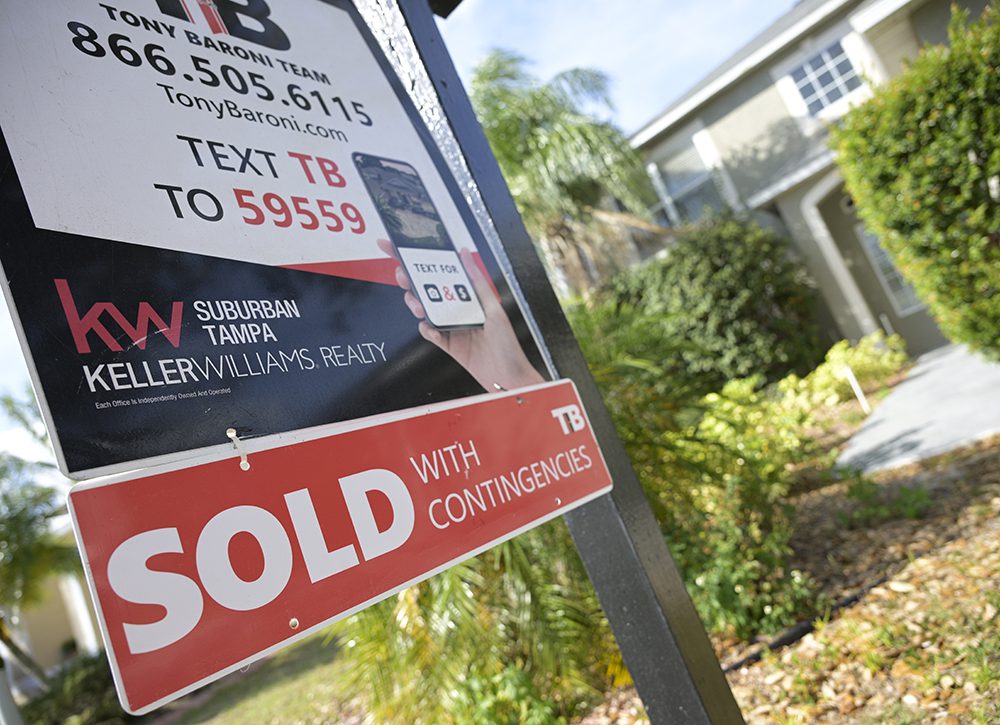The Surprising Way That Inflation Can Boost Homeownership

Between high inflation, rising interest rates, and general economic uncertainty, it may not feel like the right time to plunge into the housing market. But if past patterns hold true, people who are living through this time may be more inclined to buy a house in the future.
New research co-authored by Berkeley Haas professor Ulrike Malmendier and forthcoming in the Journal of Finance has shown that people who experience periods of high inflation in their lifetimes are significantly more likely to own a home. This even holds true when people from high-inflation countries immigrate to the U.S.
“In short, people who have lived through a lot of inflation like to hedge themselves by putting money into a real asset,” said Malmendier, who coauthored the paper with UC Berkeley Economics alumna Alex Steiny Wellsjo, PhD 20, BS 10, now an assistant professor at UC San Diego’s Rady School of Management. “If this has been your experience and you’re choosing whether to rent or a buy a home, you might opt to buy.”
Inflation changes behavior
Building on Malmendier’s prior work, the paper is the first to show that personal experience with inflation can drive homeownership both within and across different countries.
Malmendier, who has spent much of her career demonstrating the long-lasting effect of economic shocks on people’s attitudes and behaviors, noticed striking differences in homeownership across Europe: 82% of Spanish households own their homes, while in neighboring France, the number is 57%. In Italy, less than half of 30-year-olds own a home, but nearly 80% of 60-year-olds do, while in the Netherlands there’s no difference between 30- and 60-year-olds.
This could be the result of distinct cultural attitudes about homeownership. And it could relate to institutional opportunities such as how the government subsidizes mortgages in one country versus another. But Malmendier, who holds a joint appointment in Berkeley Economics, thought something less obvious might also be at play.
Datasets from two continents
The researchers approached this question in two ways, on two continents. First, they paired homeownership data from Europe with experiences of inflation and looked both across countries and across individuals within countries. They found that countries with more historical inflation had higher rates of homeownership than those with more stable financial histories. Likewise, within a given country, people who had experienced greater inflation over their lifetimes were more likely to own a home than those who had experienced less. Numerically, increasing a typical household’s experience with inflation of 2% to inflation of 5.4% increased their likelihood of homeownership from 65% to 75%.
Next, the researchers collected information on 1.4 million households that had immigrated to the United States from a range of high- and low-income countries. Controlling as much as possible for things like relative income and wealth, they again found that past experiences with inflation were tightly coupled with levels of home ownership.
“When people come from a country with high inflation, it seems that experience really scars them,” Malmendier says. “Even when they’re in a completely different place with different monetary policies, they carry this worry that their money will lose value unless they put it into something like real estate.”
Experience with inflation even overshadowed housing market prices when predicting people’s decisions. While people who have witnessed a growth in value in the housing market are more likely to purchase a house, this experience is not as powerful a predictor of homeownership as living through inflationary periods.
What to do
The precise mechanism driving these results is an open question, but Malmendier suspects it might be related to “availability bias,” the psychological phenomenon in which our brains jump to the knowledge or experiences that are most salient to the issue on hand. If people face the choice of locking the value of their money into a tangible asset, they may be swayed by calling to mind a memory of currency values fluctuating wildly.
What to do about this fact remains a hard nut to crack.
Malmendier, who sits on her native Germany’s Council of Economic Experts, is heavily involved in the world of economic policymaking. While there is no clear prescription from findings like these, what she tries to convey to politicians is that “we need to think more about the long-term effects of crisis experience on people’s behavior,” she says.
To begin with, this means managing crises as quickly as possible to mitigate any lasting damage. At this moment, she noted, much of Europe is fighting very high inflation. This should be addressed as quickly as possible — a delicate challenge, Malmendier admits, as the cure can sometimes be worse than the illness; if interest rates are raised too high that can create economic woes of its own. “It’s complicated,” she said.
Translating psychology into policy
Beyond addressing crises as quickly as possible, though, Malmendier advocates for economic policy that is more deeply attuned to the nuance of human psychology. Current approaches, she said, often look for solutions in the wrong place. She offered the financial crash of 2008 as an example. Once the economy had been righted and again resembled its pre-crash state, consumer optimism remained relatively low. Economists began searching for subtle differences in the circumstances. Maybe people had lost income or savings? Maybe educational outcomes had changed? Politicians opened discussion of another stimulus.
In fact, it was the consumers, not their environment, that had changed.
“If I live through a financial crash, my brain has been reprogrammed, it has been scarred, different neural synapses have formed and been activated,” Malmendier says. “This person you’re talking about is now a different person. The policymaking realm does not put enough thought into this.”
